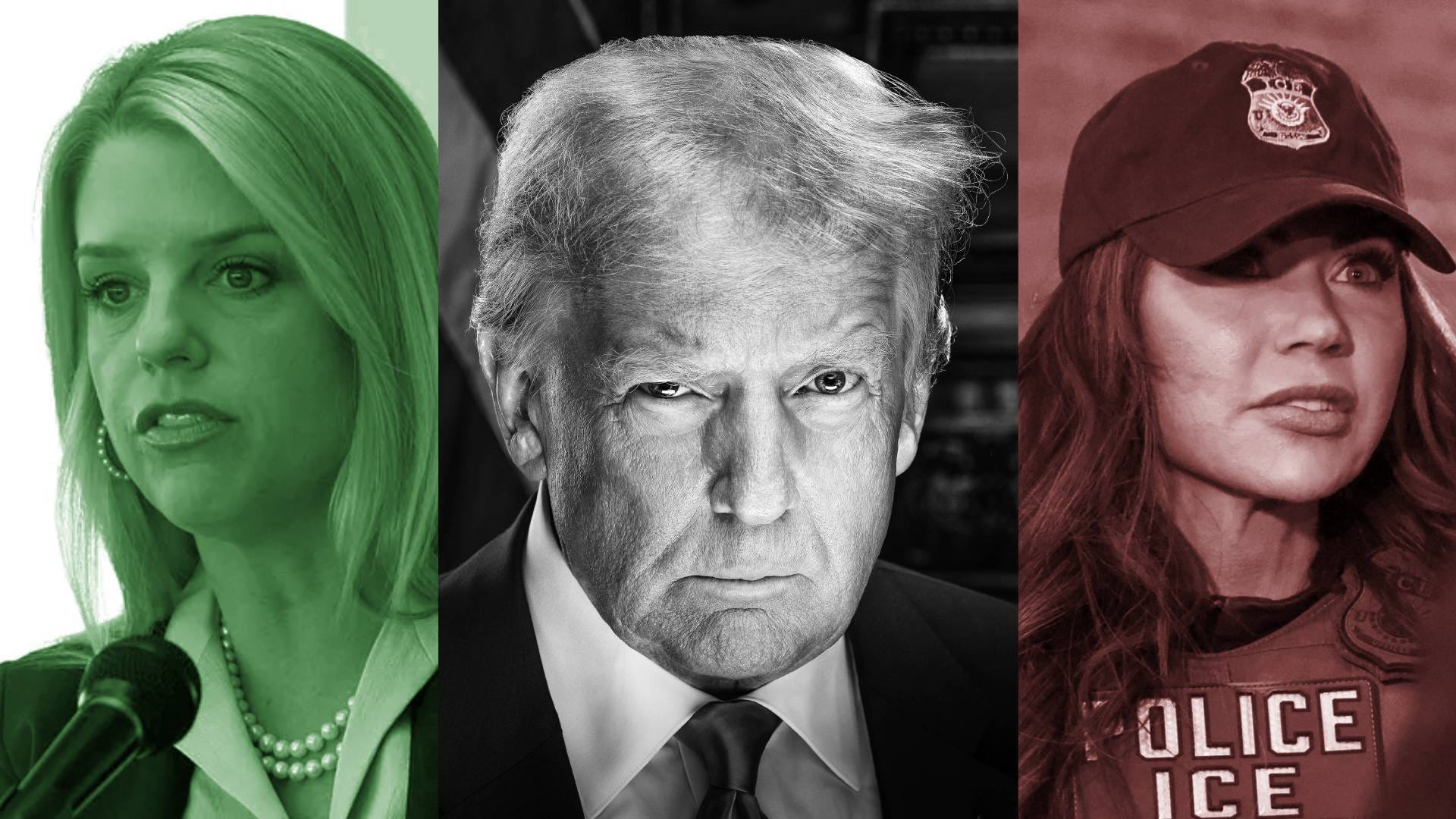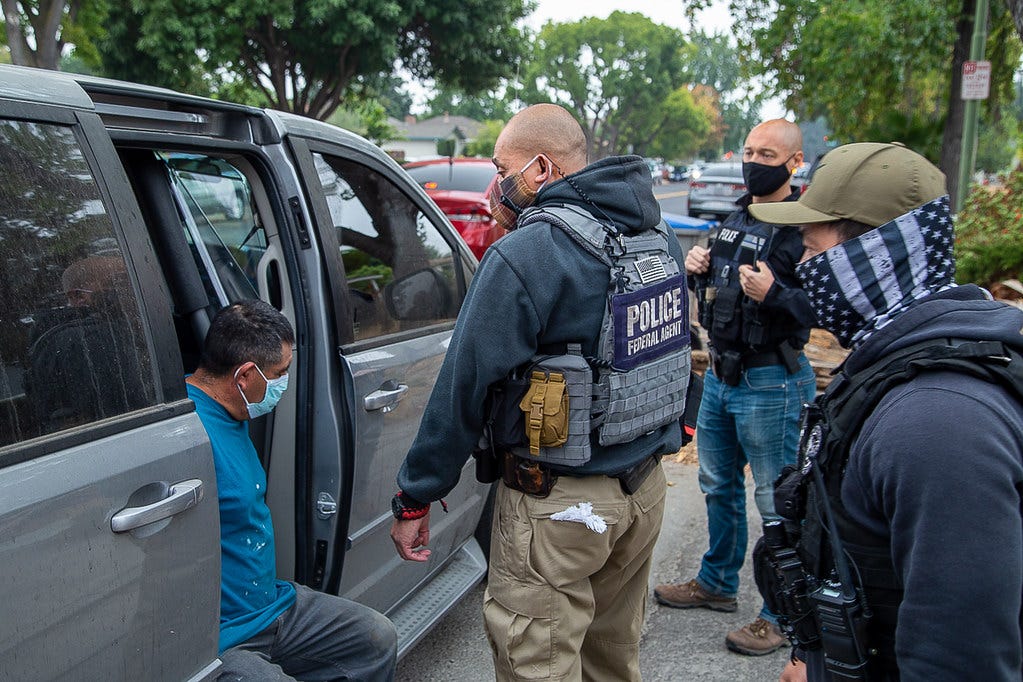Designating cartels terror orgs granted Trump broad powers: he is showing he plans on using them
U.S. announces first ‘terrorism’ charges for supporting a Mexican cartel
The United States on Friday leveled the first federal charges against a foreign national for providing material support to one of the many criminal groups President Donald Trump designated a “foreign terrorist organization”.
Immigration and Customs Enforcement (ICE) alleges that 39-year-old Maria Del Rosario Navarro-Sanchez, a Mexican citizen, provided the Jalisco New Generation Cartel (CJNG) “with grenades and engaged in alien smuggling, firearms trafficking, bulk cash smuggling, and narcotics trafficking on its behalf
Trump directed his office to prepare the new designations shortly after taking office. In February, he made similar declarations involving eight organized crime groups in Latin America— including Venezuelan gang Tren de Aragua and Mara Salvatrucha (MS-13).
CJNG was also named in the executive order. Since then he has expanded the list to include two Haitian gangs and other criminal groups in Mexico.
“Cartels like CJNG are terrorist groups that wreak havoc in American communities and are responsible for countless lives lost in the United States, Mexico, and elsewhere.” said Attorney General Pamela Bondi in the statement. “This announcement demonstrates the Justice Department’s unwavering commitment to securing our borders and protecting Americans through effective prosecution.”
The release also included photos of narcotics, firearms, and “El Dorado”, a gold-plated AR-15 rifle that ICE says were found in Navarro-Sanchez’s home at the time of her arrest by Mexican officials on May 6.
The foreign terrorism designation had been previously used by the U.S. only to refer to violent groups with political goals. The Department of Homeland Security (DHS )was given broad powers to investigate and prosecute such groups after its creation during the administration of George W Bush as part of the “War on Terror.”
DHS and other agencies cooperating with their security forces have been accused of “a global storm of human rights abuses” by Human Rights Watch and other watchdog groups.
The designation of criminal groups as terrorist organizations greatly broadens the tools at the disposal of U.S. security forces and prosecutors.
In addition, under U.S. law, “providing material support” to terror groups is a federal crime, greatly increasing the number of potential targets for both legal and military actions.
Some experts, however, say the net cast by the designation could be alarmingly wide.
U.S. companies that do business in Latin America routinely make thousands of payments to companies that could be controlled by or affiliated with a cartel, cartel members, or paramilitary structures. This could potentially expose those American firms to severe penalties.
Migrants could also be swept up and charged with terrorism for paying fees to smugglers to cross Latin American countries or the U.S.-Mexico border. Many of these smugglers have loose affiliation with, or pay “taxes” to organized criminal groups now considered terror groups by the U.S.
In addition, the U.S. president has the authority to conduct unilateral military actions against terror groups, leading to worry the U.S. might conduct military operations on U.S. soil. Mexico has repeatedly made clear that it opposes any such action, but has stepped up cooperation with U.S. joint task forces since January.
The Trump administration is facing a series of legal challenges for the arrest and deportation of migrants in the U.S. under new powers Trump claims are granted by the designation.
In conjunction with the Alien Sedition Act, the regime claims that these criminal groups, especially the Tren de Aragua, are conducting an “invasion” of U.S. soil.
Intelligence assessments by U.S agencies have denied Trump's claims about the Tren, stating they have little to no organized presence in the country.
The court records unsealed by ICE on Friday revealed that Navarro-Sanchez has two co-defendants, also Mexican citizens, who face charges of firearms trafficking and other crimes.
We are currently in a subscription drive! Please consider helping us bring you the independent journalism PWS has become known for! We have plans that start at just $5/month.
The Big Headlines in LATAM
Uruguayan ex-President José Mujica, known as “Pepe”, died at 89 in his humble home. The ex-guerrilla who governed Uruguay from 2010 to 2015 was known as the world’s “poorest president” because of his modest lifestyle.
Following an ambush last week in the Colombian-Ecuadorian borderlands that left 11 Ecuadorian soldiers dead, President Daniel Noboa expanded his “war” against organized crime in the country to include three dissident groups of the Revolutionary Armed Forces of Colombia (FARC).
The decision adds foreign armed actors to ongoing military actions against criminal groups in Ecuador.
President Gustavo Petro has called on citizens to organize mass social movements in response to an allegedly fraudulent Senate vote that sank a broadly supported referendum on the expansion of labor rights in Colombia.
He further ordered security forces not to interfere with civil protests. His party, and some labor unions, are calling for a general strike.
Riot police dispersed more than 300 families protesting peacefully near the home of Salvadoran President Nayib Bukele, and arrested two social leaders on Monday May 12. The protesters were trying to draw attention to a recent judicial order that dispossessed them of their lands and left them homeless and without livelihoods.
In response, Bukele announced a proposal for a “Foreign Agents Law” that will apply a 30% tax on donations to NGOs.
Ship’s Log
Joshua is back in Medellin after an amazing reporting trip across the Amazon jungle in the Colombian-Ecuadorian borderlands. He is swamped in work as part of a video project related to struggles between indigenous communities and Canadian mining companies there. But there will always be time for Pirate Wire Services.
Daniela is planning to visit Med soon as well for a story at El País. The piratas may even manage a home-cooked dinner together!
WE ARE JUST FIVE SUBSCRIPTIONS AWAY FROM OUR GOAL THIS QUARTER! Please help us get across the finish line! PWS is producing more hard-hitting stories than ever now that we have launched the new LATAM Daily Wires vertical. Help our fledgling newsroom keep bringing you the stories and the context the big guys miss.
Spanish Word of the Week
Parchar: Colombian slang for “to chill” or maybe “to hang out”, like one does with the homies.
Que haces, pana? - What are you doing, bro?
Pues nada, parchando con los pelaos, compa. Vienes?- Just hanging out with the homies, bro. Wanna join?
With that, thanks for parchando, piratas! See ya next week!




